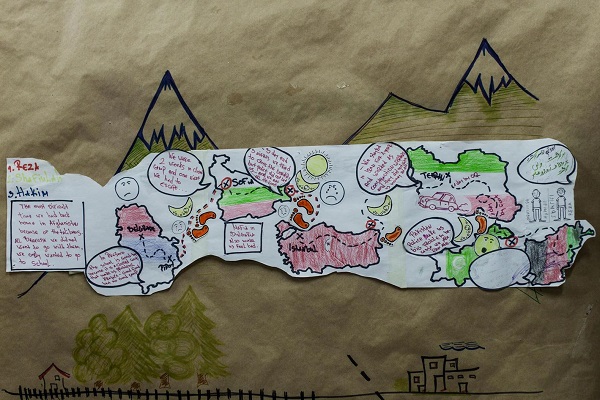 North West Balkans
North West Balkans
Languages
Reports about push backs and violence against children on the move at the Western Balkans borders: January - June 2019
In the first half of 2019, four out of ten refugee and migrant children met and supported in Belgrade, the main transit hub on the Western Balkans migration route, reported being pushed back across the borders of the countries in the region without due process. In every third case of the alleged pushbacks, the refugee and migrant children reported that police and border guards used excessive force when expelling children across the borders.
During the period from January to June 2019 Save the Children’s partner organization Praxis encountered and provided support to 1,842 refugee and migrant children in Belgrade, including those traveling alone and children accompanied by their family members.[1] As many as 40% of the minors (731) reported experiencing pushbacks from some border during their journey. With some children testifying about several pushbacks, the number of the cases recorded (795[2]) is slightly bigger than the number of children reporting them.
Every third child (35%) reported witnessing violence or being victims of violent conduct by police officers or border guards during pushbacks
Unaccompanied and separated minors made roughly 90% of all children supported by our outreach team during the first half of 2019 and they reported 83% of all pushback cases (664). All of the reports were made by boys. The majority of pushback cases alleging violent conduct were reported by UASC boys (91%). When it comes to children travelling with their families, every fifth case reported a pushback involving violence. Girls reported 42% of these cases.
According to the reports received, police and border guards acted in a degrading manner towards the refugees and migrants encountered, using various forms of verbal and physical violence, issuing threats, mocking refugees and migrants, seizing valuables and personal items, destroying phones and personal items, and ignoring explicit requests for asylum. Minors reported not being asked about their age and being treated as adults, although every fifth child claiming to have been returned from the borders (18%) was 13 years or younger, with 12% of alleged violent conduct involved children of this age group.
Examples of stories heard from the children
Three minors from Afghanistan testified about being beaten and robbed by Croatian police before being returned to Bosnia and Herzegovina.
A 15-year-old boy from Afghanistan reported spending one month in detention in Croatia before being returned to Serbia.
A 12-year-old boy from Pakistan said that he was beaten by Serbian police while being returned to North Macedonia.
Two Iranian families with women and children reported being severely beaten by Romanian border guards.
A family from Iraq testified about Romanian police beating men and ordering women from their group to undress.
A Syrian family, travelling with 8-month-old baby, left Greece, crossed Albania, Montenegro and Bosnia and Herzegovina reaching Croatia. They were reportedly returned by Croatian guards to Bosnia and Herzegovina and then deported to Serbia by the Bosnian police.
As Afghan children make the largest proportion of minors transiting through Serbia, the largest number of children reporting pushbacks are also from Afghanistan (78%), followed by children from Pakistan (7%), Iraq (6%), Iran (5%) and Syria (2%).
Most of the reported pushbacks involving children occurred at the Croatian (222), North Macedonian (124), Bulgarian (103) and Hungarian (93) borders. The highest frequency of violent practices was reported at the Bulgarian borders, where 8 out of 10 pushbacks were reportedly violent. Bulgaria is followed by Greece where 61% of reported pushbacks allegedly involved violence from, 59% from Romania, and 33% from North Macedonia.
Save the Children and Praxis has been working in Serbia since 2016 to support refugees and migrants, providing information, support with registration, referrals to needed services, while collecting data about arrivals and monitoring trends in mixed migrations in Western Balkans route. Based on the data collected by outreach teams, Save the Children and Praxis issue reports, research papers and advocacy and media briefings calling for better protection and support for refugee and migrant children who continue to travel through the Western Balkans route.

Map of the journey created by teenagers from Afghanistan in Refugee Aid Miksaliste in Belgrade, Serbia.